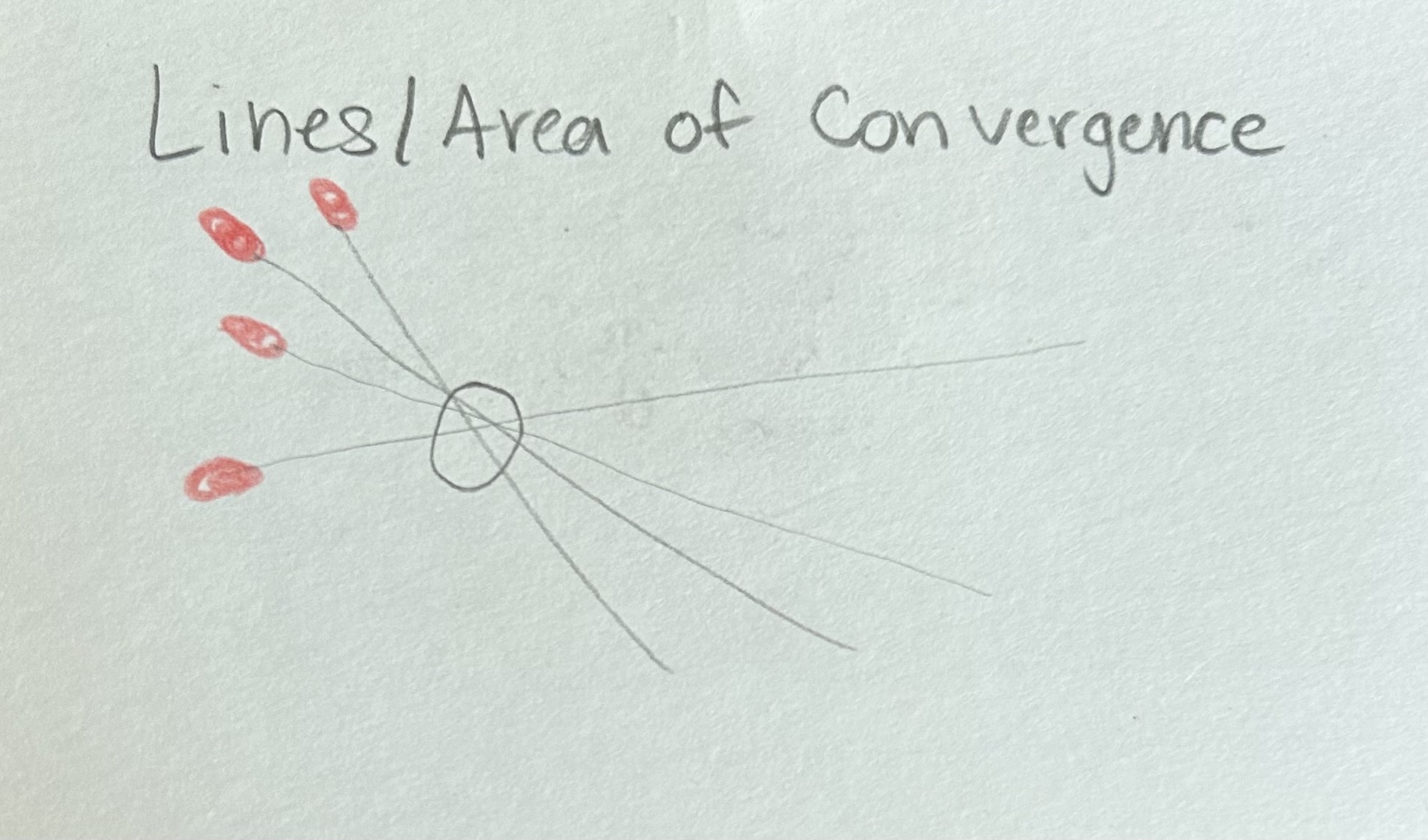Unit 7B Blood Spatter
1/18
There's no tags or description
Looks like no tags are added yet.
Name | Mastery | Learn | Test | Matching | Spaced |
|---|
No study sessions yet.
19 Terms
Transfer Pattern
Wet, bloody surface contacts a second surface;minimal lateral motion
→ Person steps in blood or presses hand to bloody surface
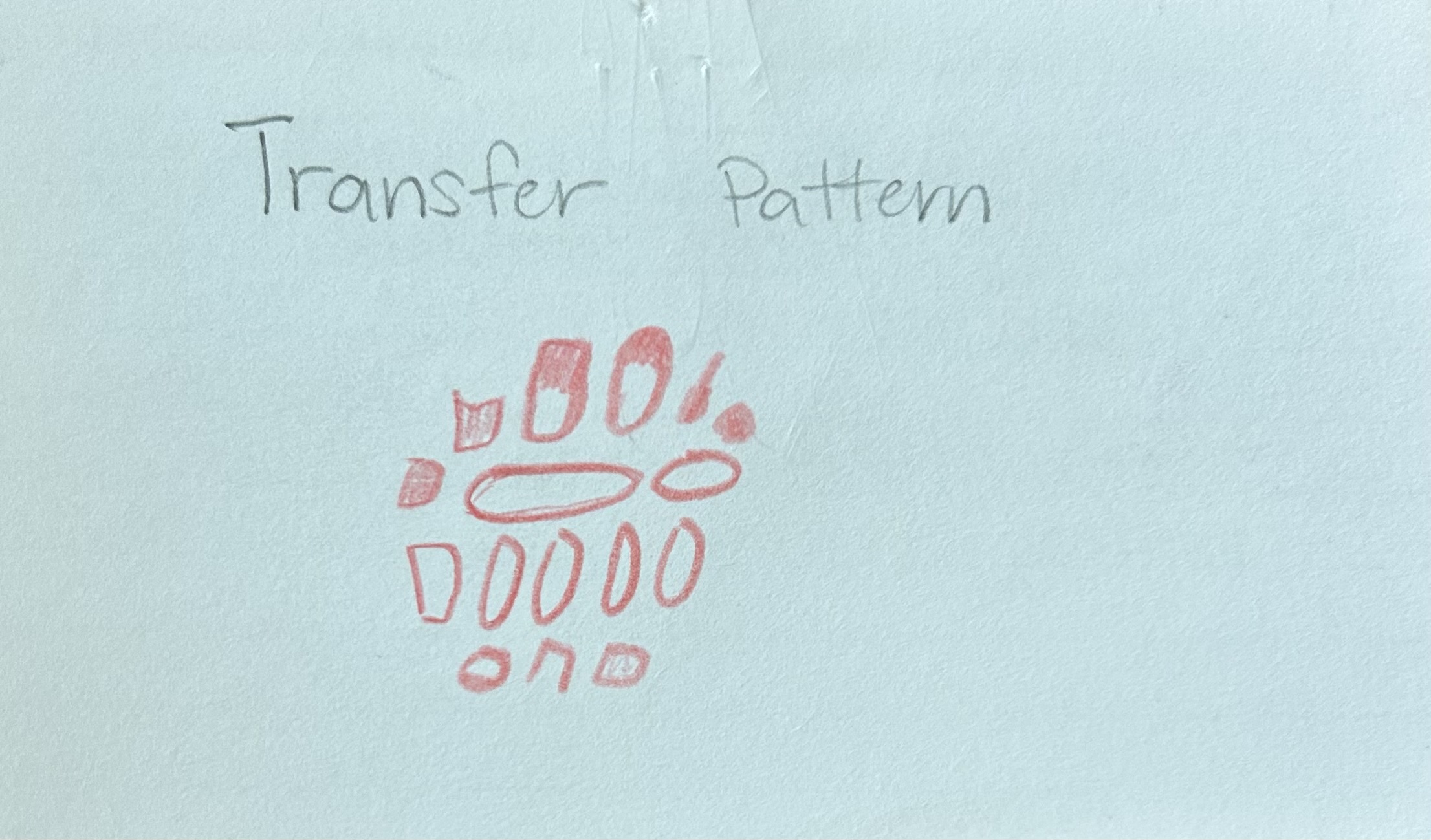
High Velocity Pattern (force? diameter? cause? shape?)
Force: 100ft per sec or greater
Diameter of droplets: smaller than 1mm
Cause: Gunshot wound, extreme worce
Shape: many satellites and spines
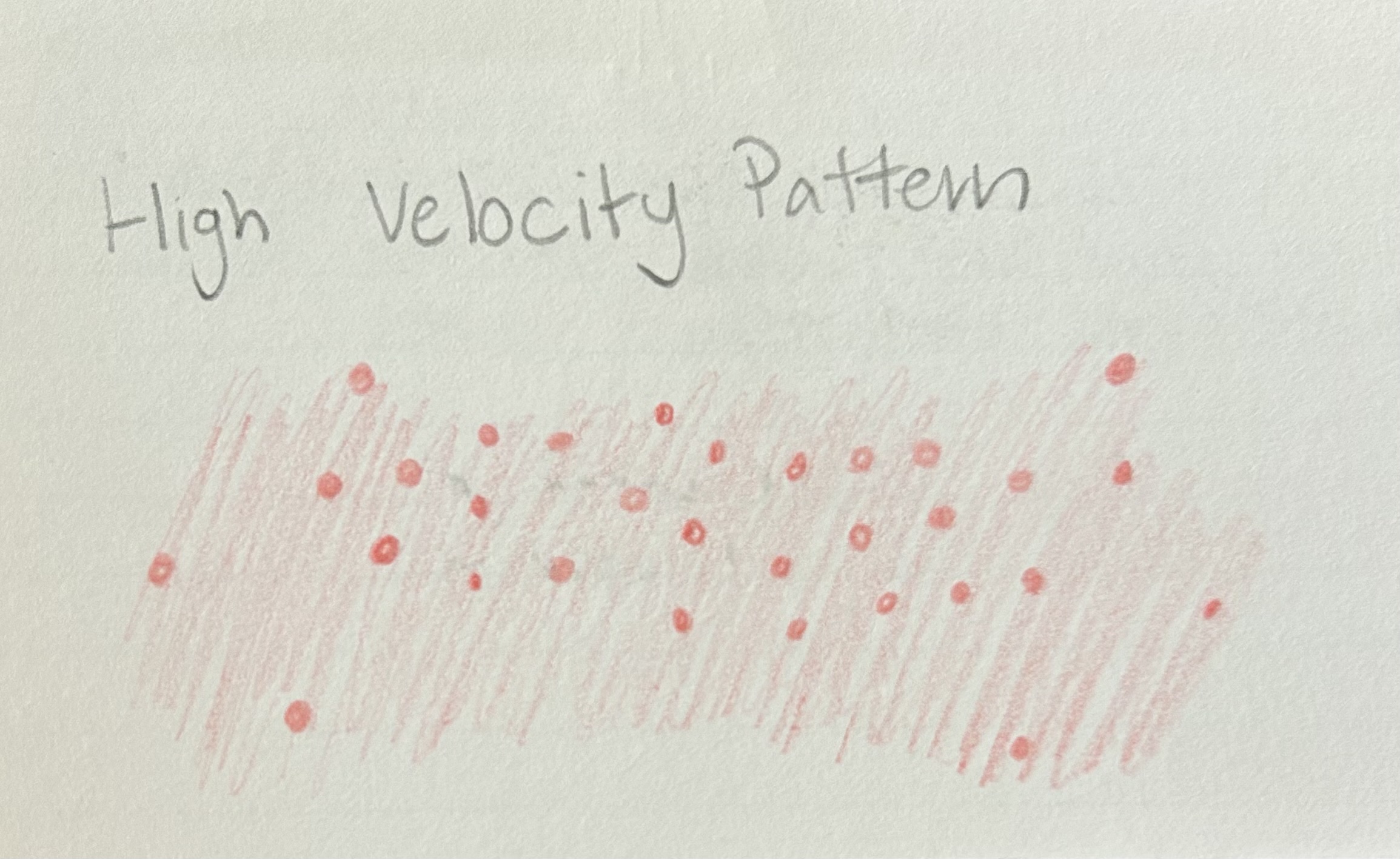
Medium Velocity Pattern (force? diameter? cause? shape?)
Force: 5-10ft per sec
Diameter of droplets: between 1-4mm
Cause: Blunt object (first, bat), stabbing
Shape: some satellites and spikes
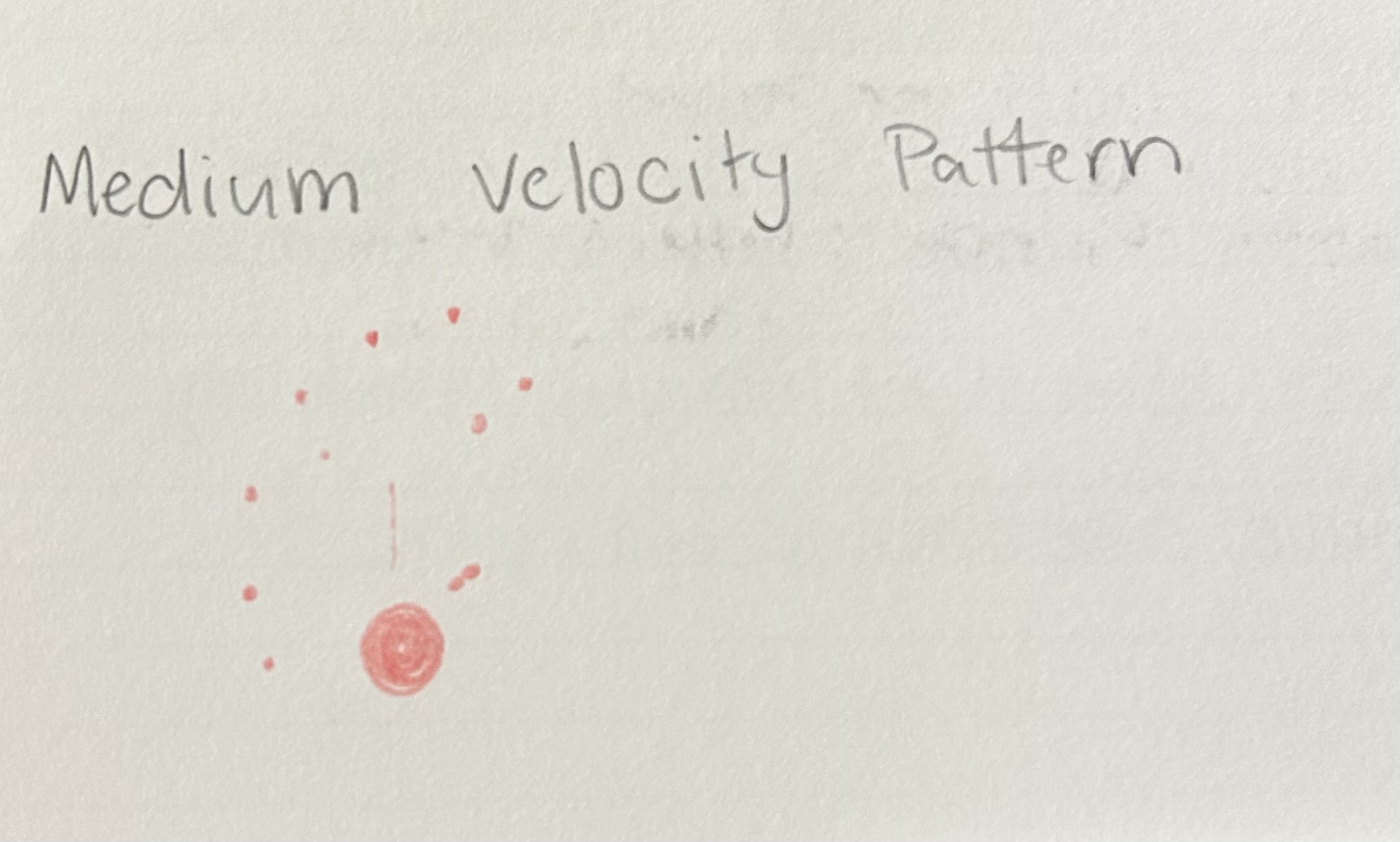
Low Velocity Pattern (force? diameter? cause? shape?)
Force: 5ft per sec
Diameter of droplets: 4-8mm
Cause: Injury Passive Drops
Shape: Less pronounced satellites and spines
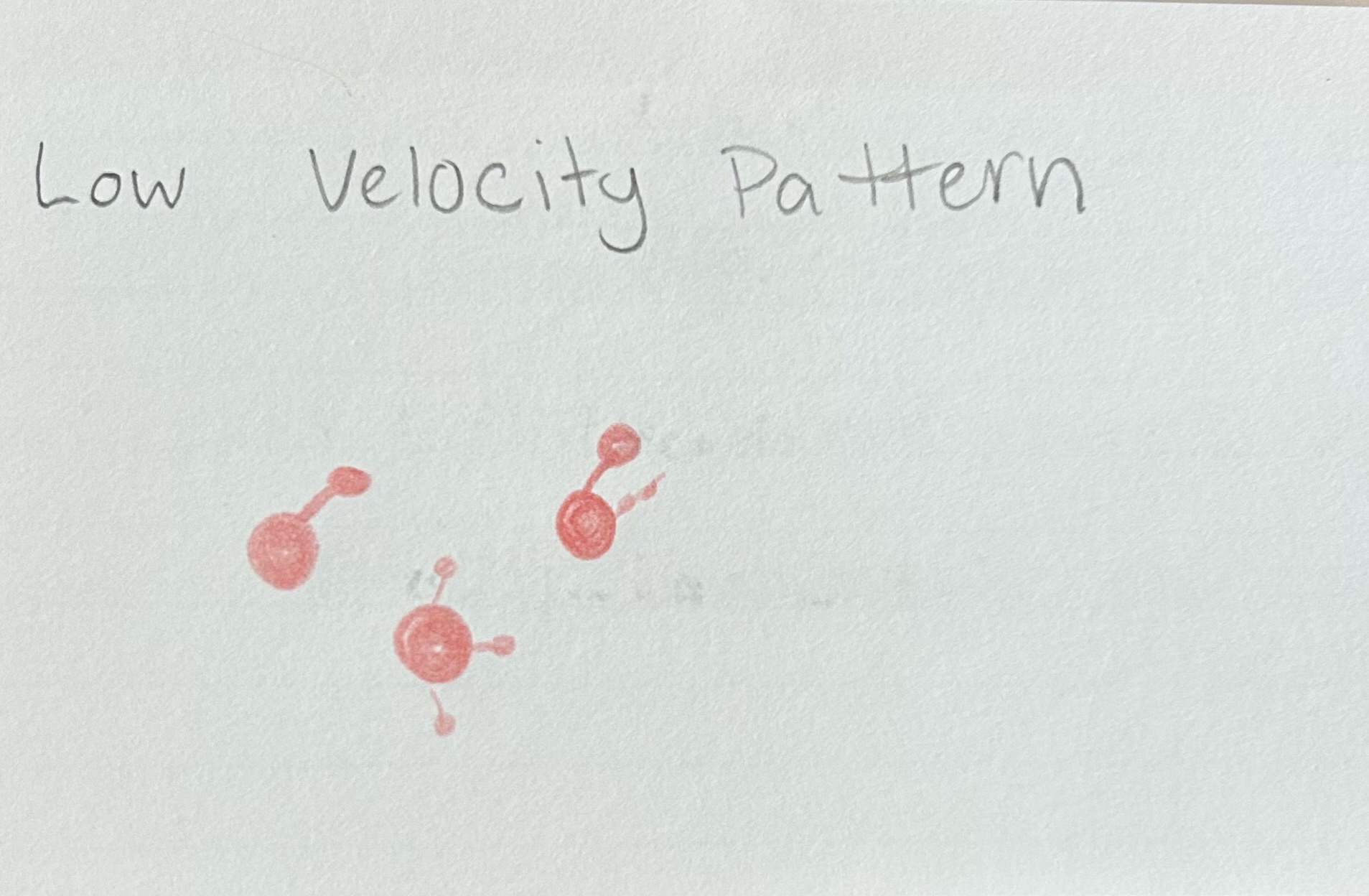
Passive Drop
Blood drop created solely as a result of gravity, linear pattern
→Person walking and bleeding, bloody moving object
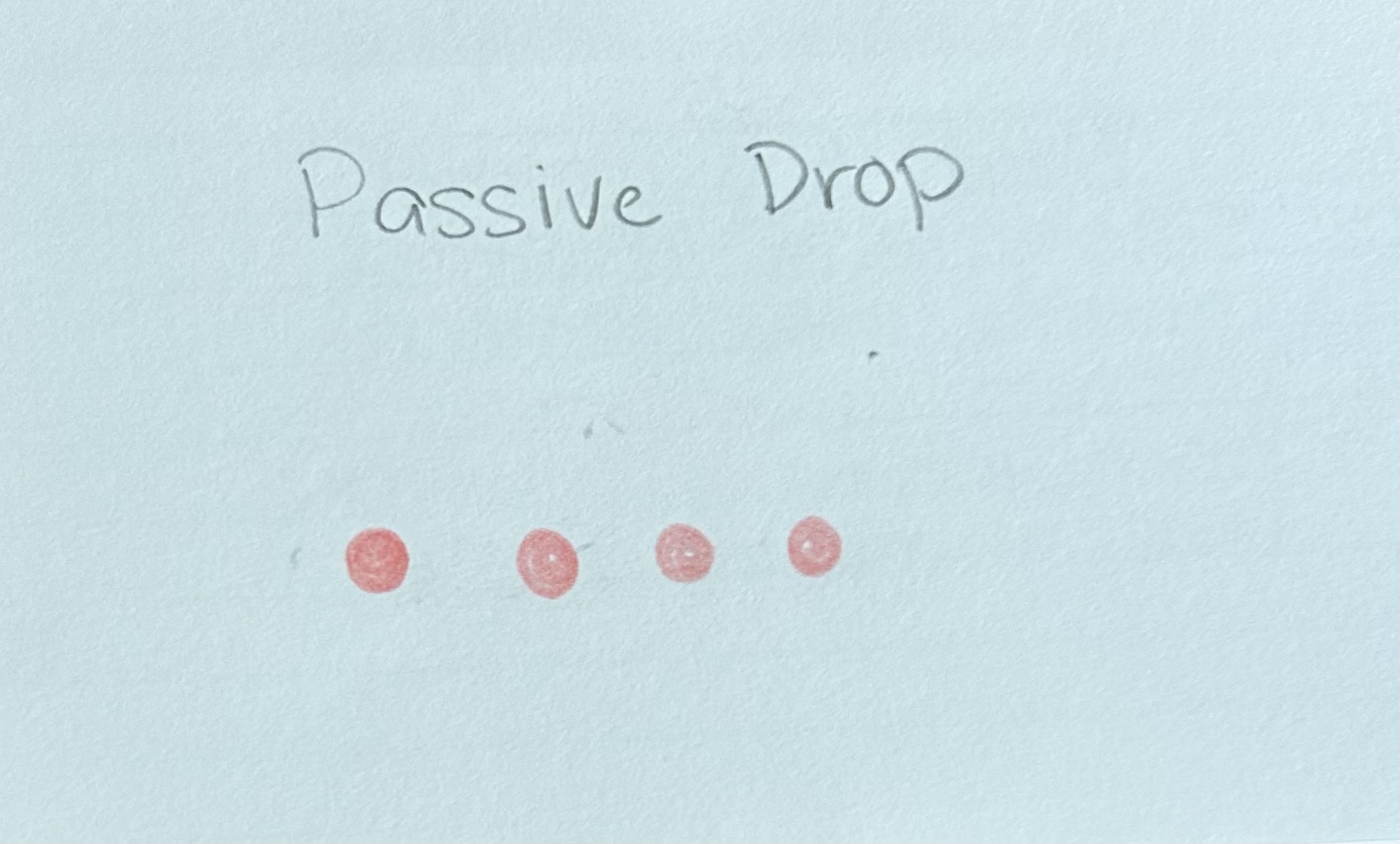
Swipe
Blood pattern resulting from a lateral transfer from a moving source onto another surface
→ Bloody hair dragged against floor
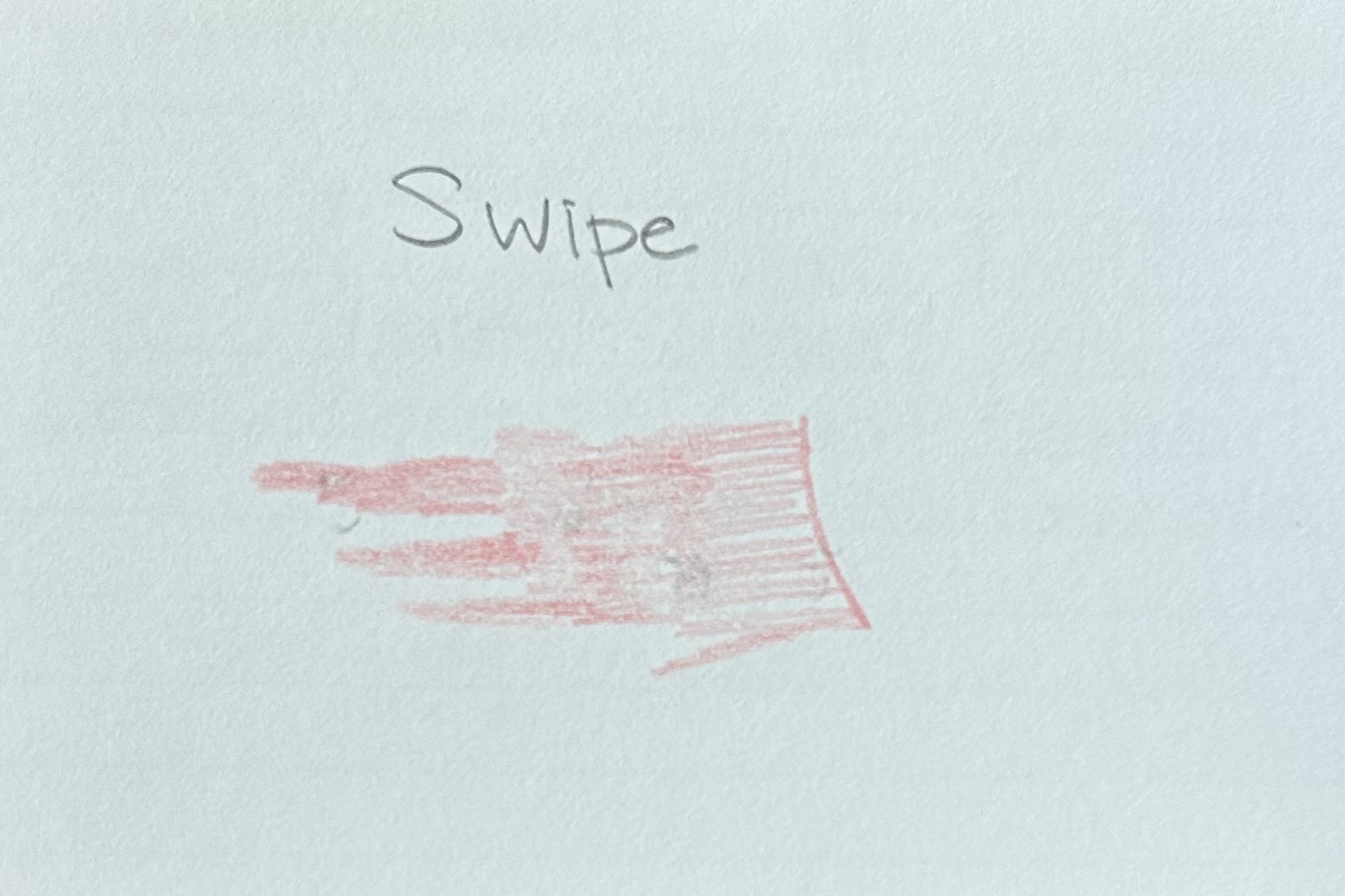
Wipe
Smeared blood pattern created when an object moves through blood that is not completely dried
→ Trying to remove blood with a cloth
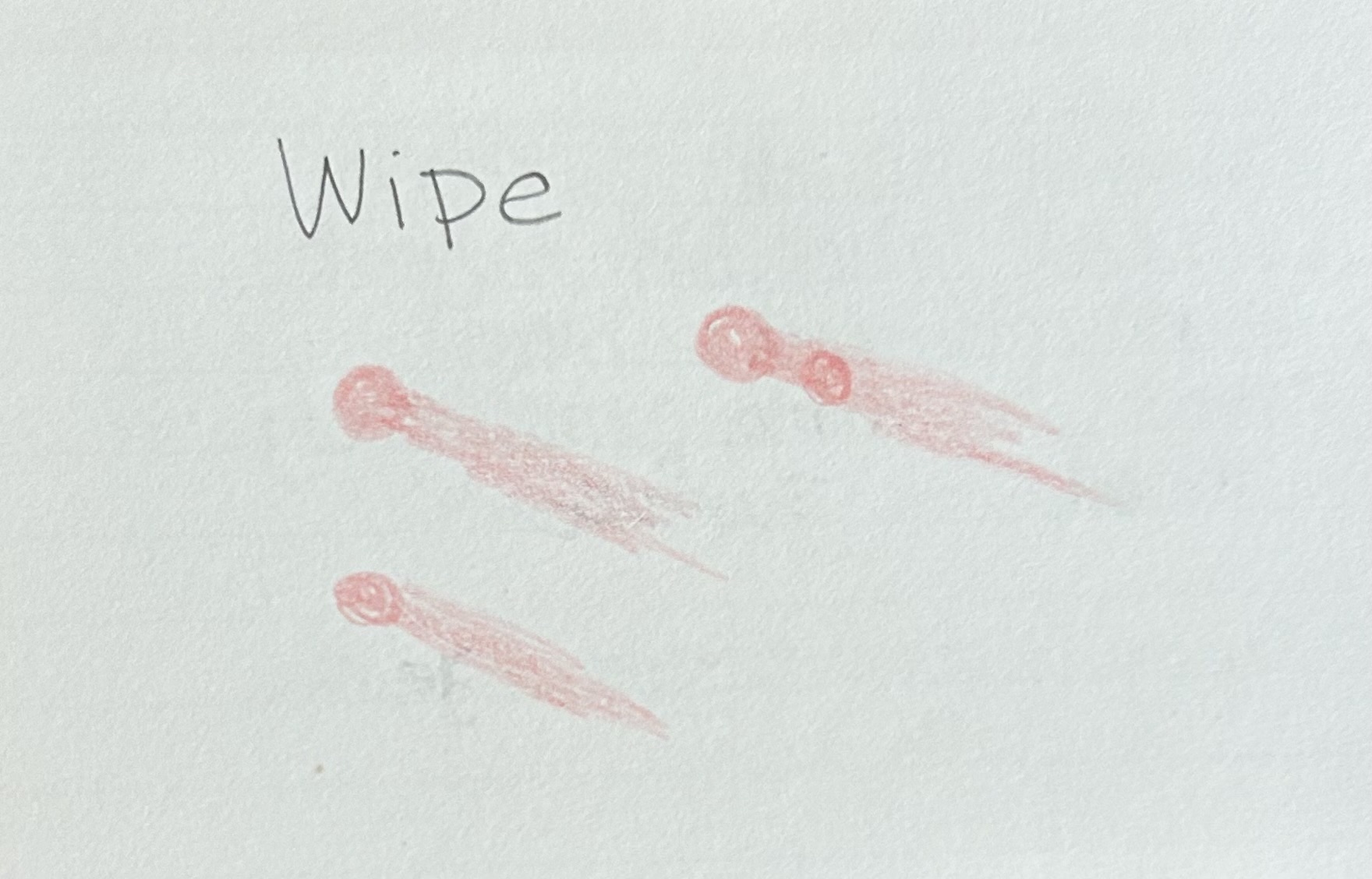
Pool of blood
A passive bloodstain, not absorbed to surface
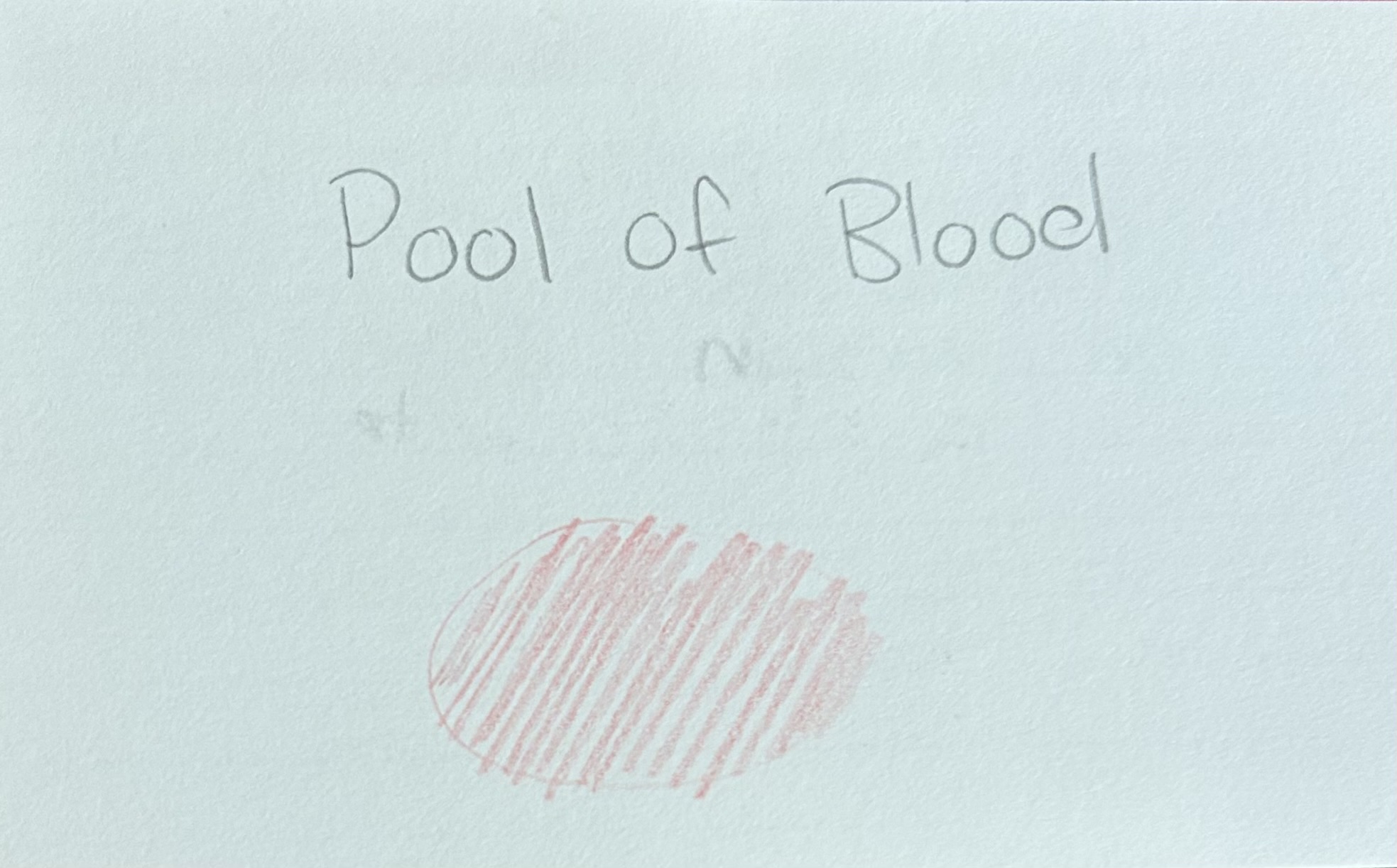
Trail of blood
Blood stains or spatter patterns that show movement of a person or object after a blood source was present
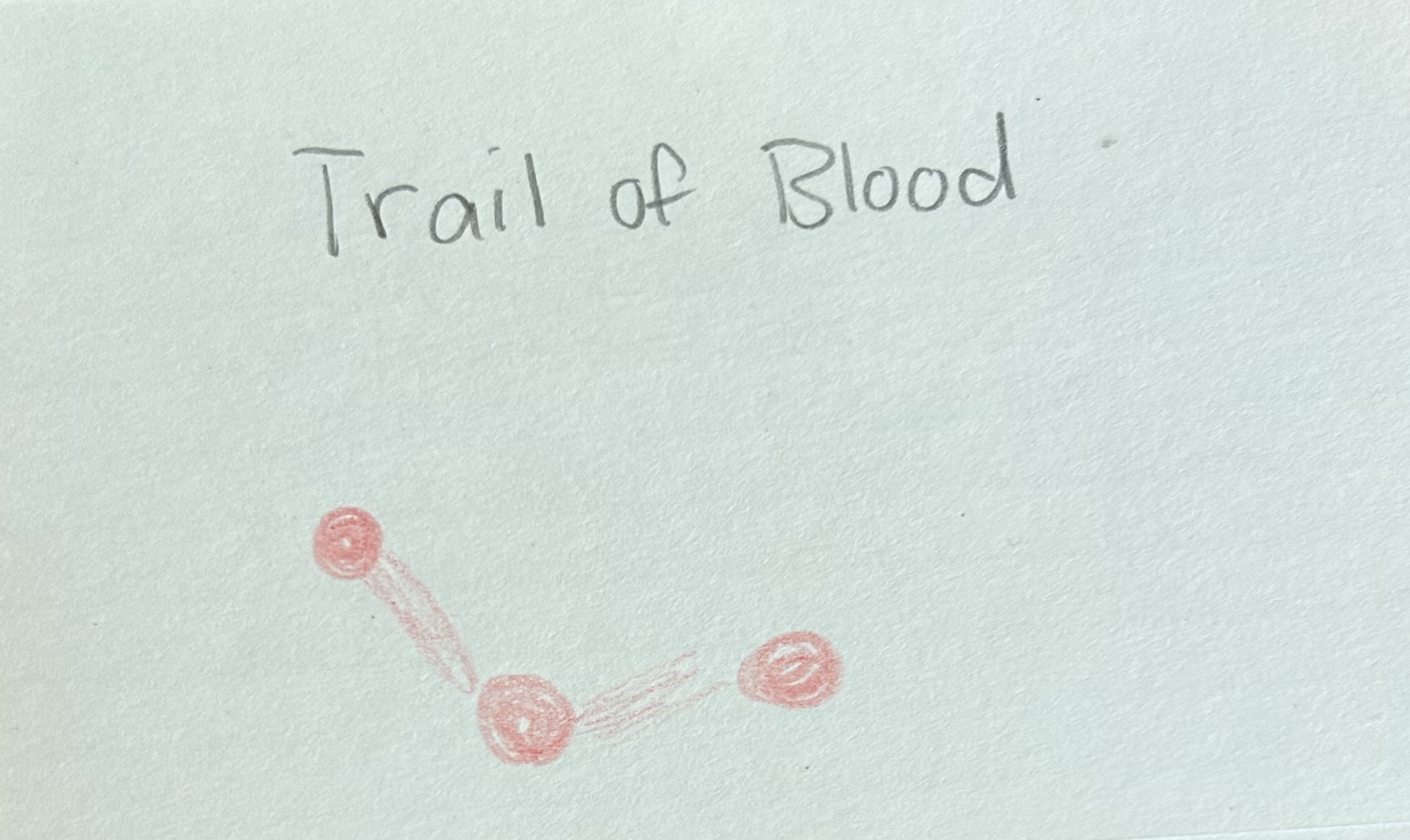
Arterial Gush
Blood exiting under pressure from an artery, gets smaller with blood loss
→ Severed artery due to injury or attack
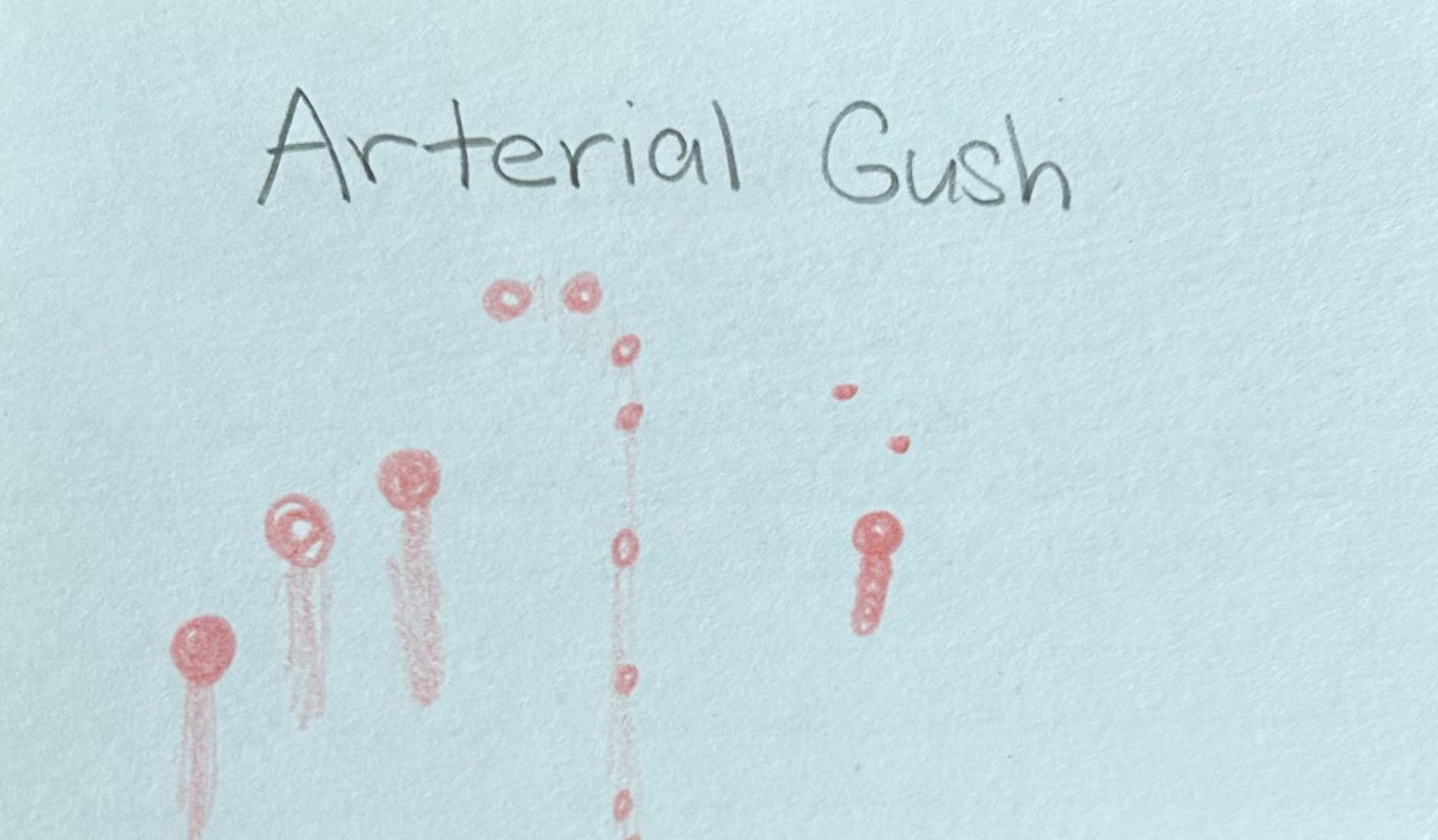
Expired blood
Blood from mouth or nose from air pressure, similar to high velocity spatter
→Injury causing internal bleeding, body trying to expel blood
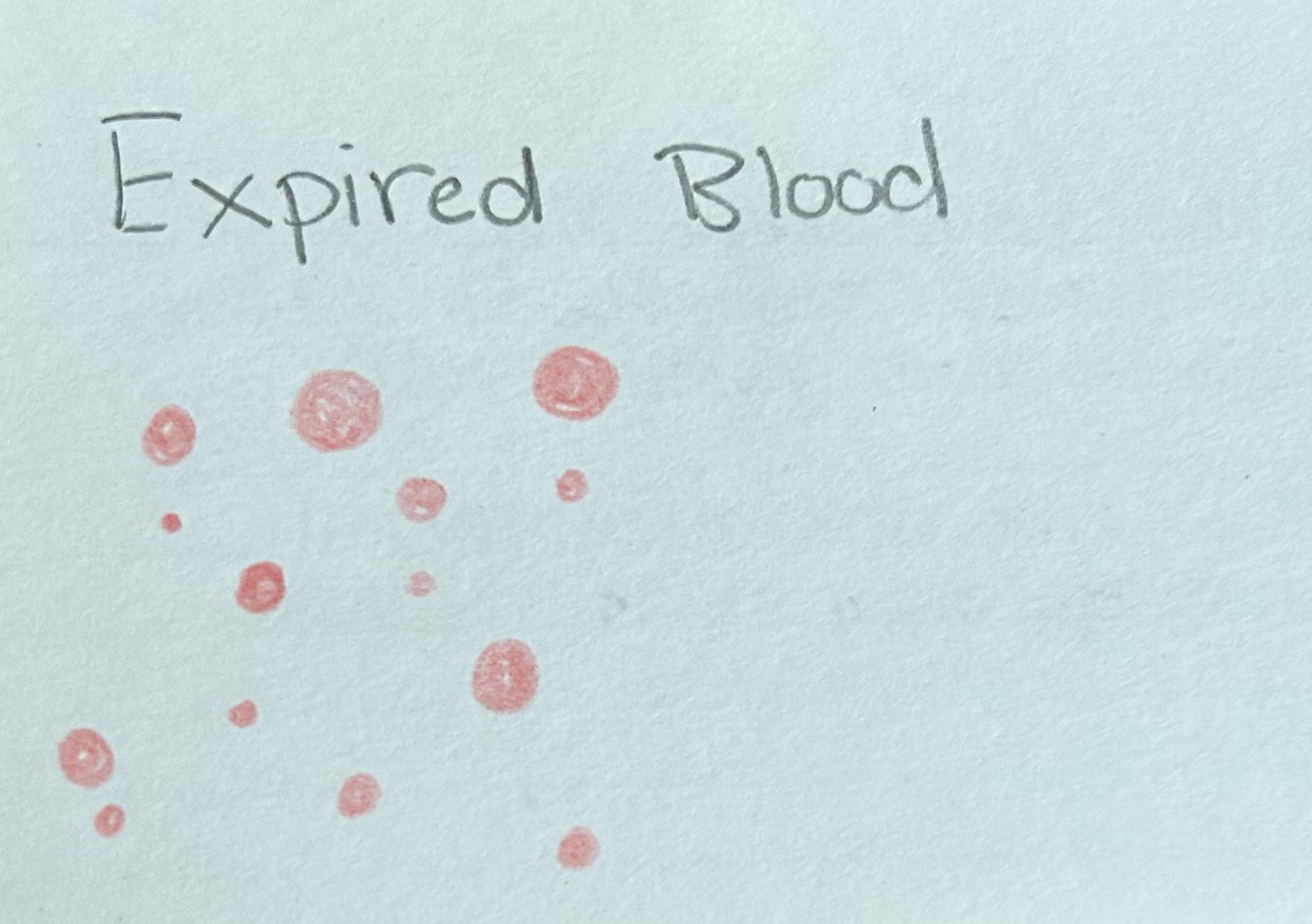
Cast off pattern
Blood projected onto a surface as a result of being flung from an object in motion
→ Person repeatedly striking someone with a weapon
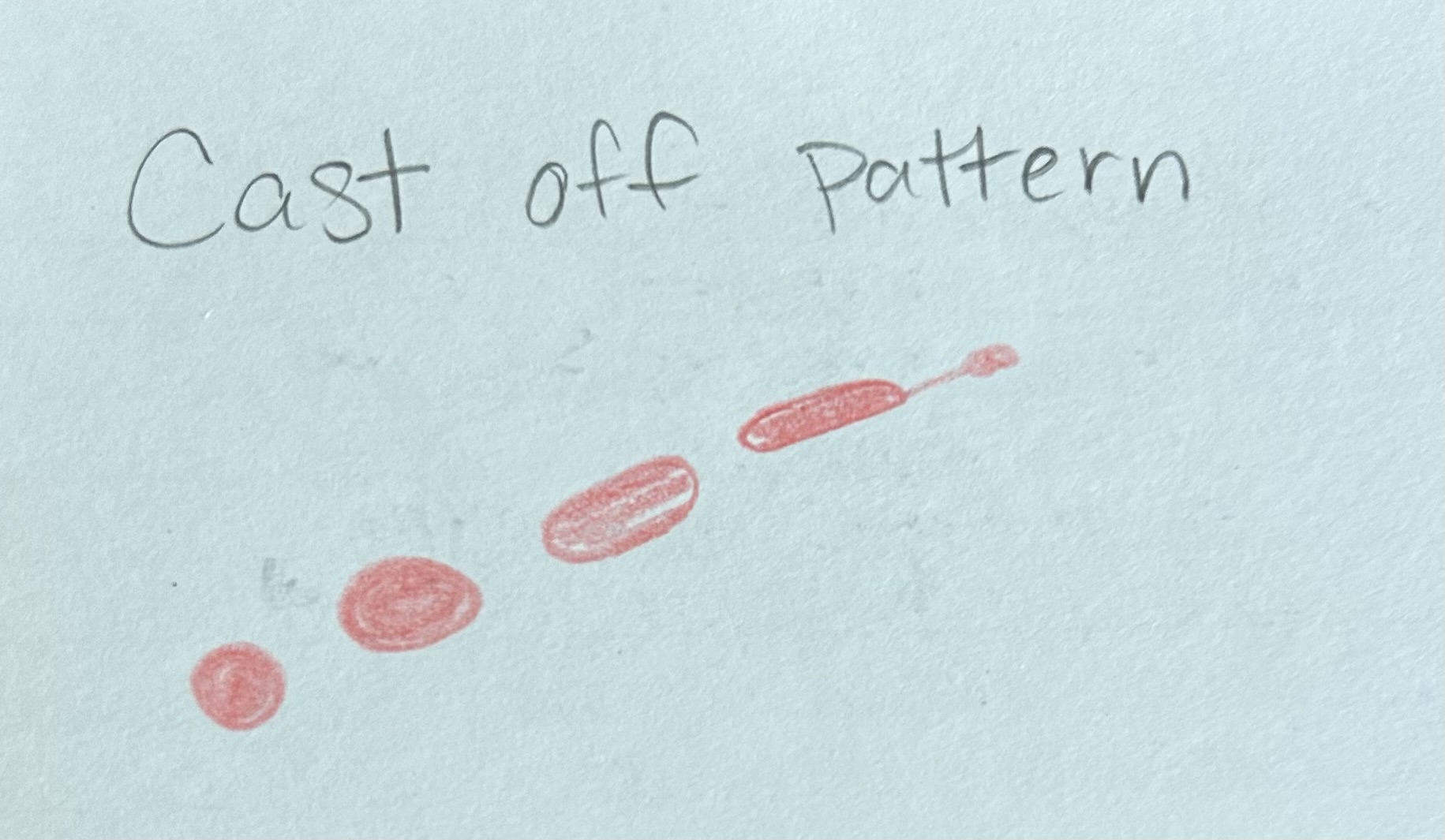
Void/shadowing
Area devoid of blood
→ Object was infront of the wall during injury but object was moved
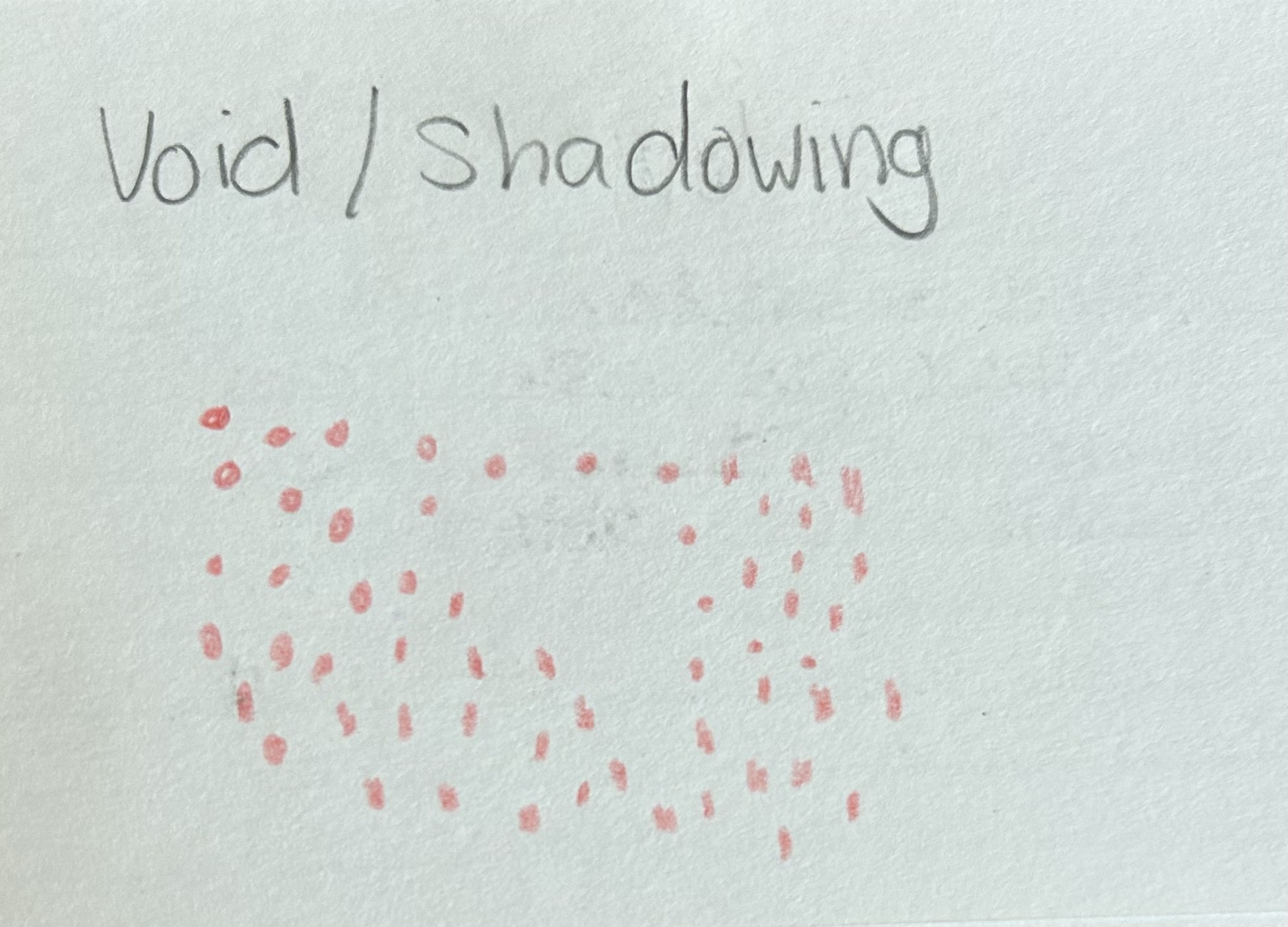
Parent drop
The droplet from which a satellite spatter originates
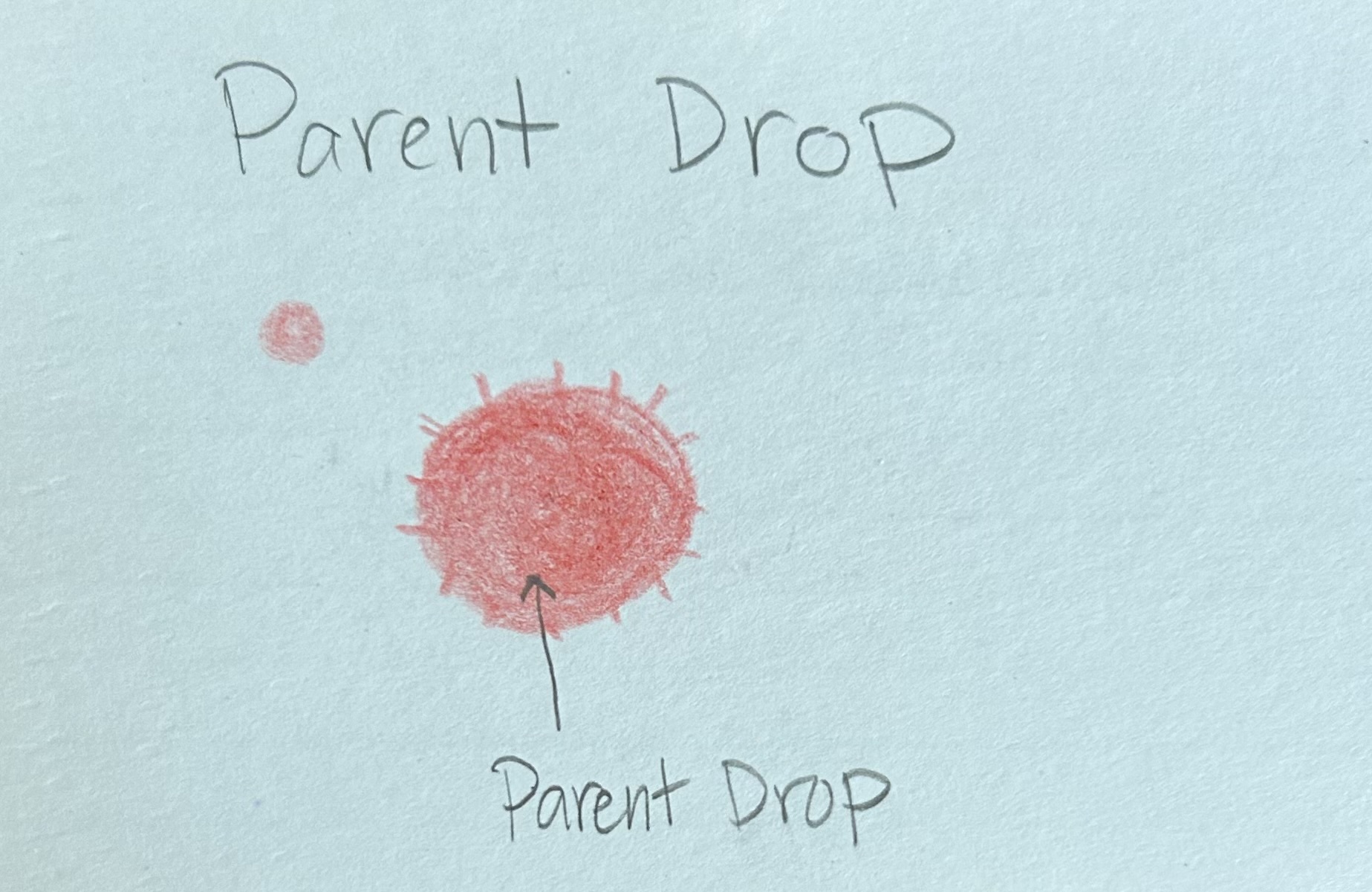
Spine/spike
Elongated blood streaks radiating away from the center of a bloodstain
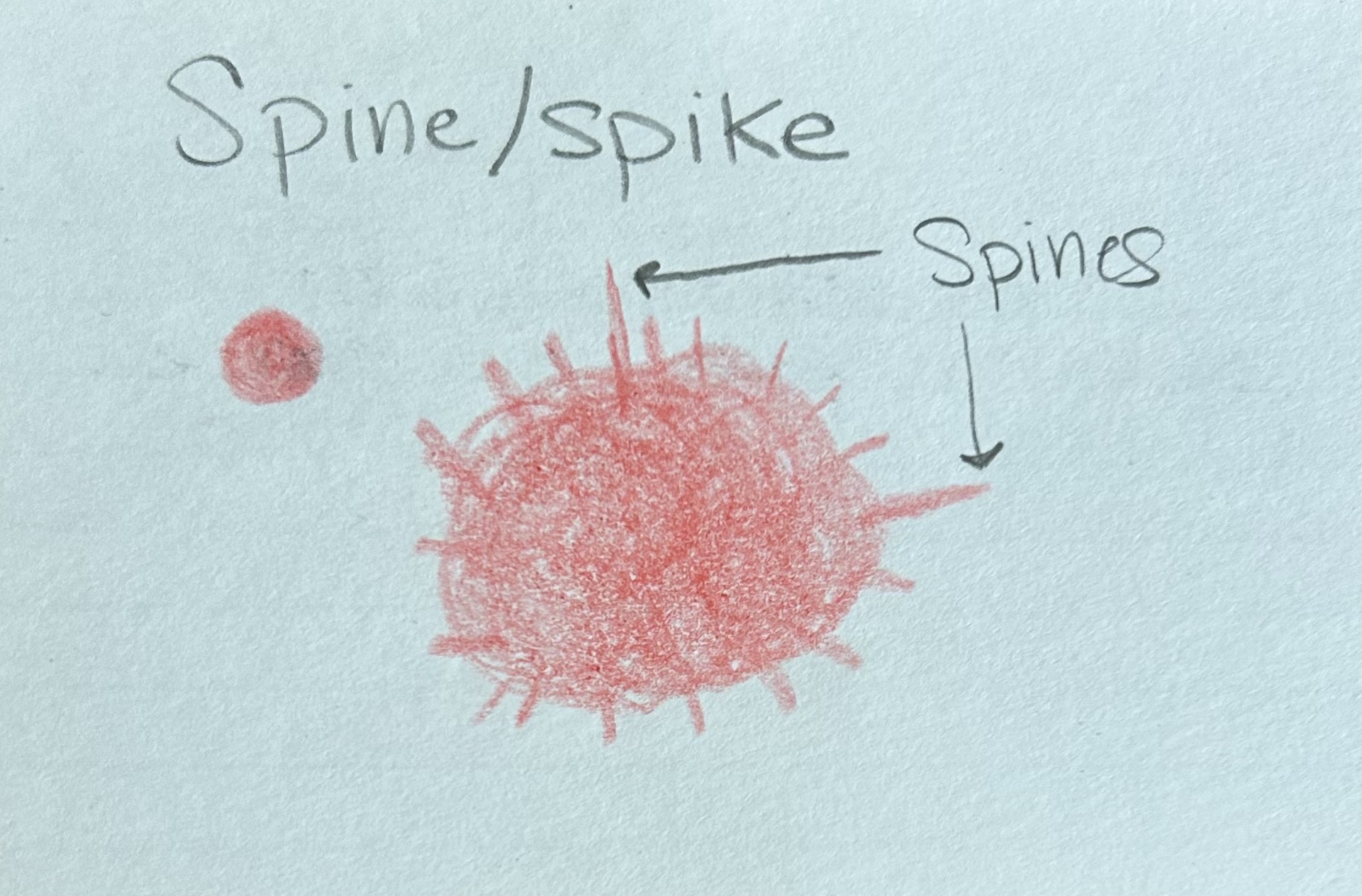
Satellite
Smaller droplet of blood projected from a larger drops of blood upon impact with a surface
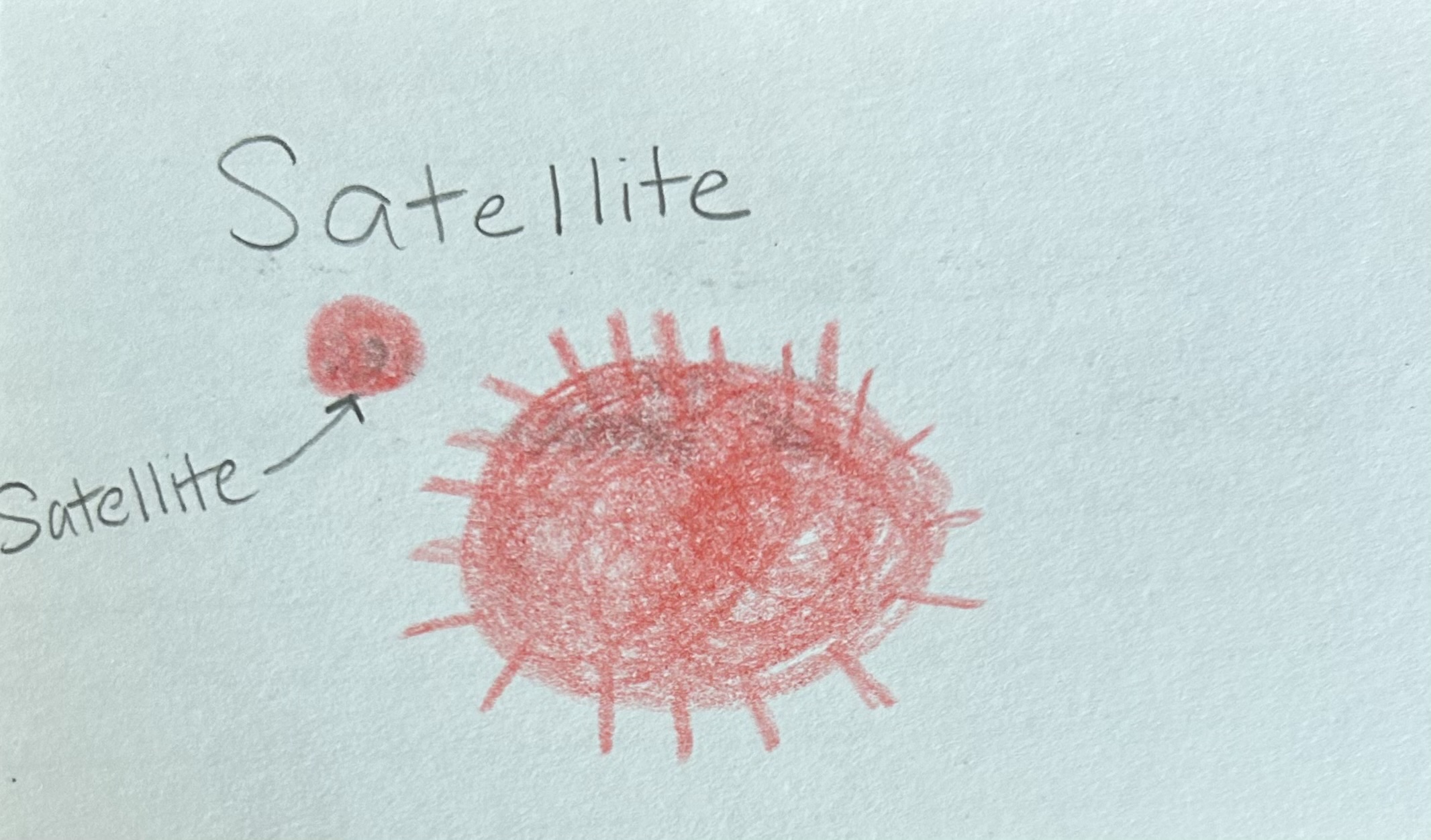
Tail
Indicates the direction of travel
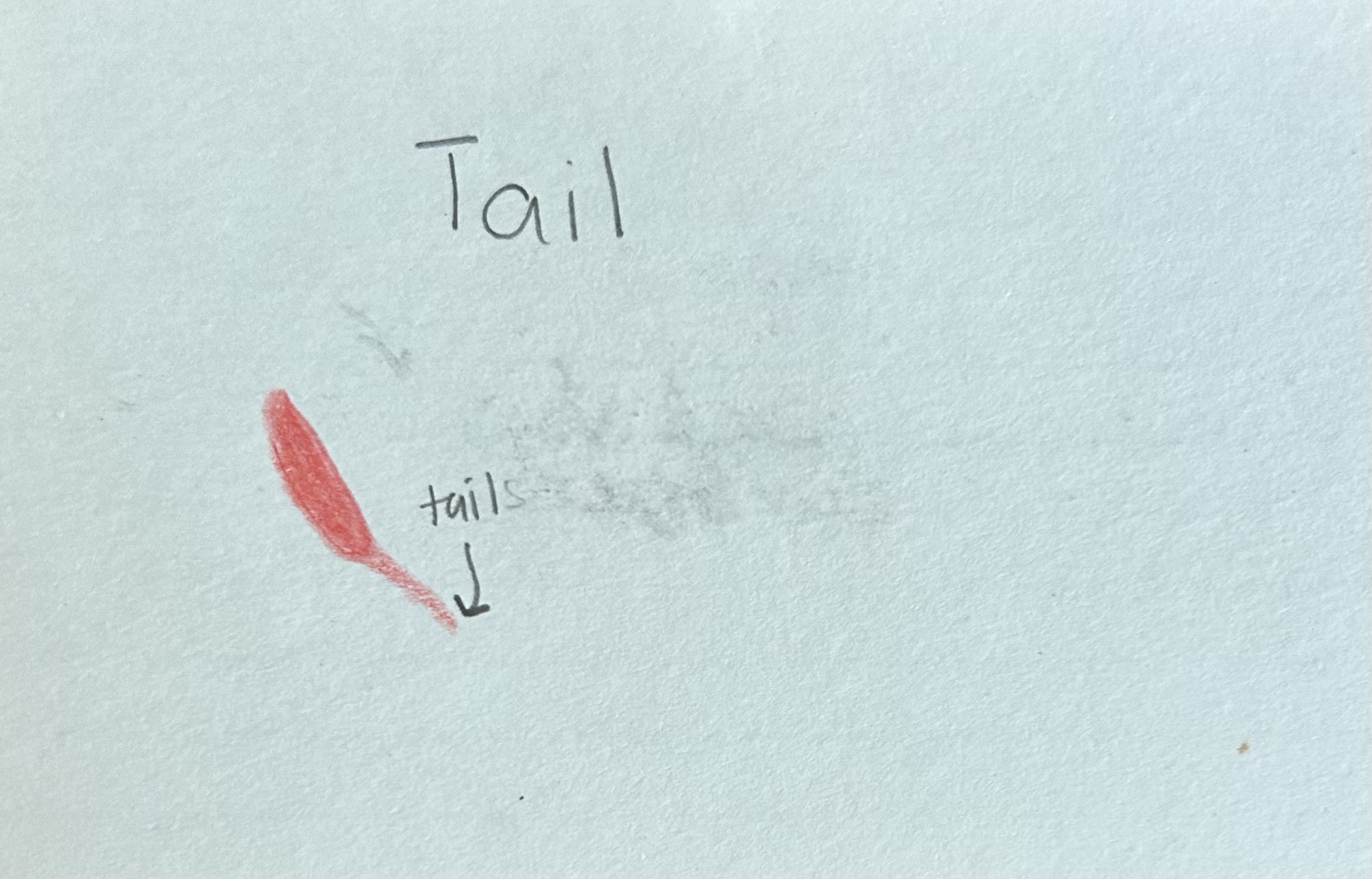
Elongation
Shape of blood stain as it related to the angle at which a blood droplet strikes a surface
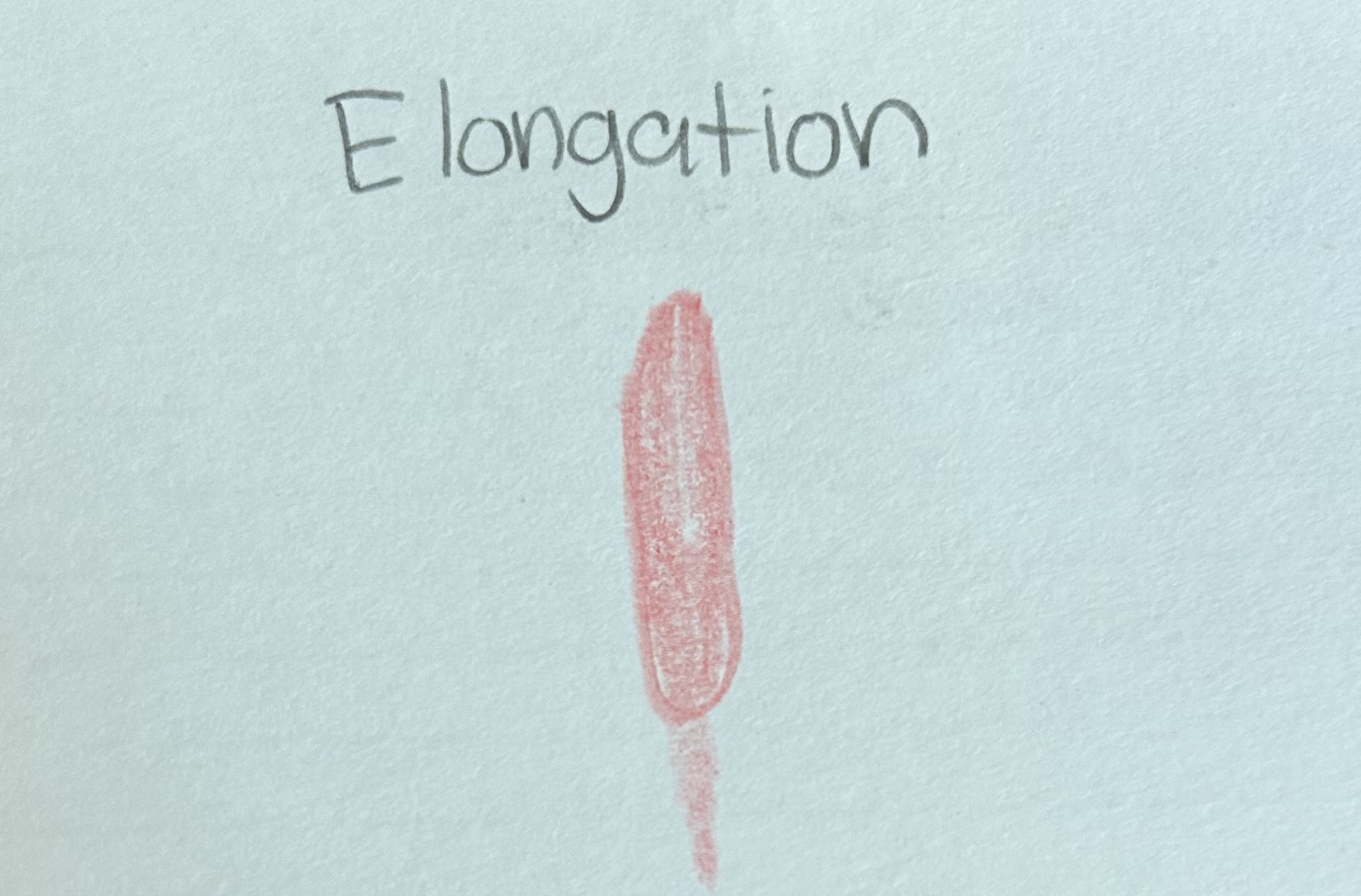
Lines/Area of Convergence
Two dimensional view of the intersection of lines formed by drawing a line through the main axis atleast two drops of blood that indicated the general area of the source of the blood spatter
